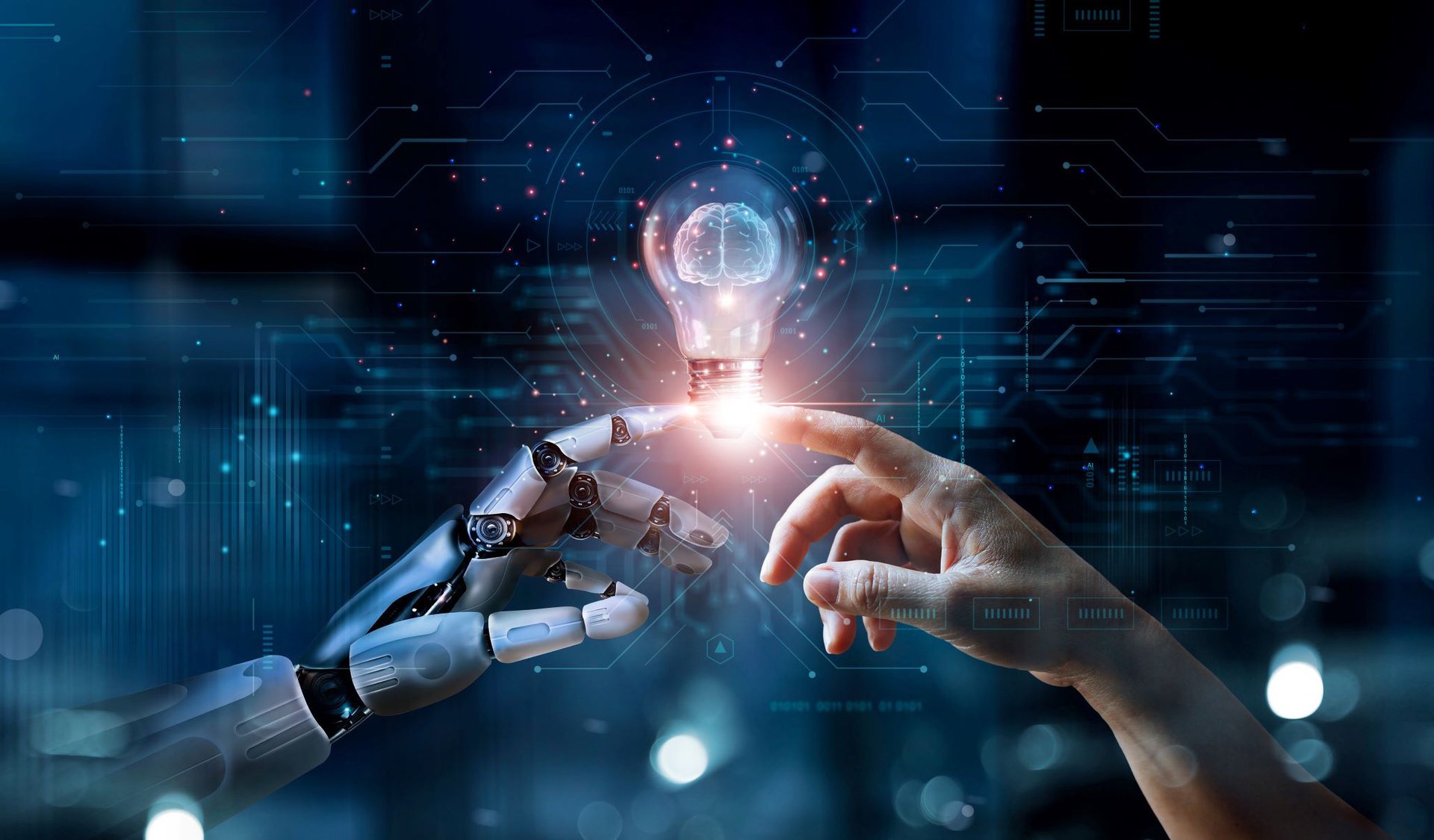
The Influence of AI on Jobs: A Closer Look at IT Roles
The rise of artificial intelligence (AI) has revolutionized many industries, and perhaps none more so than the Information Technology (IT) sector. From automating routine tasks to improving decision-making and enhancing productivity, AI is changing how IT professionals work. However, this transformation raises an important question: What is the impact of AI on IT jobs, and how will these roles evolve?
1/16/20254 min oku


The Influence of AI on Jobs: A Closer Look at IT Roles
The rise of artificial intelligence (AI) has revolutionized many industries, and perhaps none more so than the Information Technology (IT) sector. From automating routine tasks to improving decision-making and enhancing productivity, AI is changing how IT professionals work. However, this transformation raises an important question: What is the impact of AI on IT jobs, and how will these roles evolve?
1. AI as a Tool for IT Professionals
Rather than replacing IT roles outright, AI is primarily serving as a tool that enhances the capabilities of professionals in the field. IT specialists have begun integrating AI into their workflows, which leads to significant improvements in efficiency and effectiveness. Routine tasks such as software testing, data analysis, and troubleshooting are increasingly being handled by AI-driven solutions, allowing IT professionals to focus on more complex, creative, and strategic aspects of their jobs.
Examples:
Automation of Repetitive Tasks: AI-powered tools can automate system monitoring, software updates, and error diagnostics. This saves time and reduces the chances of human error, freeing up IT staff to focus on innovative tasks.
AI in Cybersecurity: AI is now being used to detect vulnerabilities, predict potential threats, and provide real-time security insights, allowing IT professionals to respond faster to security breaches.
2. Shifting Skillsets in IT
As AI takes over more routine tasks, the demand for certain skills is shifting. Roles in IT are increasingly focused on problem-solving, strategy, and creativity rather than basic system management or manual code writing. While basic technical skills like coding remain important, there’s a growing need for expertise in AI, machine learning, data analysis, and systems architecture.
IT professionals will need to continually update their skillsets to remain relevant in this AI-driven landscape. Here are some critical skills to focus on:
Machine Learning & Data Science: Understanding how AI models are built and implemented is becoming crucial for IT professionals who want to remain competitive in the job market.
Cloud Computing: As businesses increasingly migrate to the cloud, professionals skilled in cloud services (like AWS, Google Cloud, and Microsoft Azure) will be in high demand.
AI Integration: The ability to integrate AI tools and platforms into existing systems is essential for IT specialists, making their roles more strategic and impactful.
3. Emerging IT Roles Due to AI
While some IT roles may diminish due to automation, new opportunities are also emerging. These new roles require advanced technical knowledge and an understanding of how AI and automation can optimize systems and services.
Examples of Emerging Roles:
AI Specialists: Professionals who design, develop, and implement AI solutions are in high demand. Their role is to integrate AI into existing infrastructures, making businesses more efficient.
Data Engineers and Data Analysts: AI and machine learning thrive on data. Roles dedicated to curating, cleaning, and analyzing data are becoming essential for IT departments, ensuring that AI models can function effectively.
Cybersecurity Analysts for AI Systems: With the rise of AI comes the challenge of securing AI-driven technologies. Cybersecurity professionals who specialize in protecting AI systems will play an important role in the IT sector moving forward.
4. The Debate: Will AI Replace Jobs?
While AI is undoubtedly transforming IT jobs, the fear that AI will replace human workers remains a concern. However, most experts agree that AI is not here to replace jobs, but to augment them. The human element—critical thinking, emotional intelligence, creativity, and strategic thinking—cannot be replicated by AI.
AI is enhancing productivity and efficiency, allowing IT professionals to focus on high-level problem-solving and innovation. In fact, many tasks that AI performs today would have previously been too time-consuming or complex for humans to execute without significant delays. As a result, IT teams are becoming more efficient, allowing organizations to focus on growth and innovation, rather than getting bogged down by routine tasks.
5. Preparing for the Future: Embracing AI in IT Careers
The key to thriving in the era of AI is adaptability. IT professionals who embrace AI and leverage its capabilities will be in a better position to advance in their careers. Continuous learning and upskilling are essential as technology evolves at a rapid pace.
Ways to Stay Ahead:
Take Online Courses: There are numerous platforms offering courses in AI, machine learning, cloud computing, and data science. Engaging in ongoing education will ensure IT professionals stay up-to-date with the latest technologies.
Get Certified: Earning certifications from reputable organizations like Microsoft, Google, and AWS in areas such as cloud computing or AI can help set IT professionals apart from the competition.
Network with AI Experts: Joining AI and tech communities can provide valuable insights, and connecting with others in the field can lead to collaboration opportunities.
6. Conclusion
AI is undoubtedly reshaping the IT landscape, but it is not necessarily a threat to IT jobs. In fact, it’s creating opportunities for growth and innovation, while also requiring IT professionals to adapt by acquiring new skills. By embracing AI as a tool for enhancement, IT professionals can position themselves at the forefront of this technological revolution, helping their organizations thrive in a rapidly changing world.
The key takeaway is this: AI is here to augment human potential, not replace it. IT professionals who stay adaptable and keep learning will continue to be integral to the success of their companies, no matter how much technology evolves.
This blog post emphasizes the evolving role of IT professionals in an AI-driven world and encourages them to adapt and upskill to meet the changing demands of the industry.
